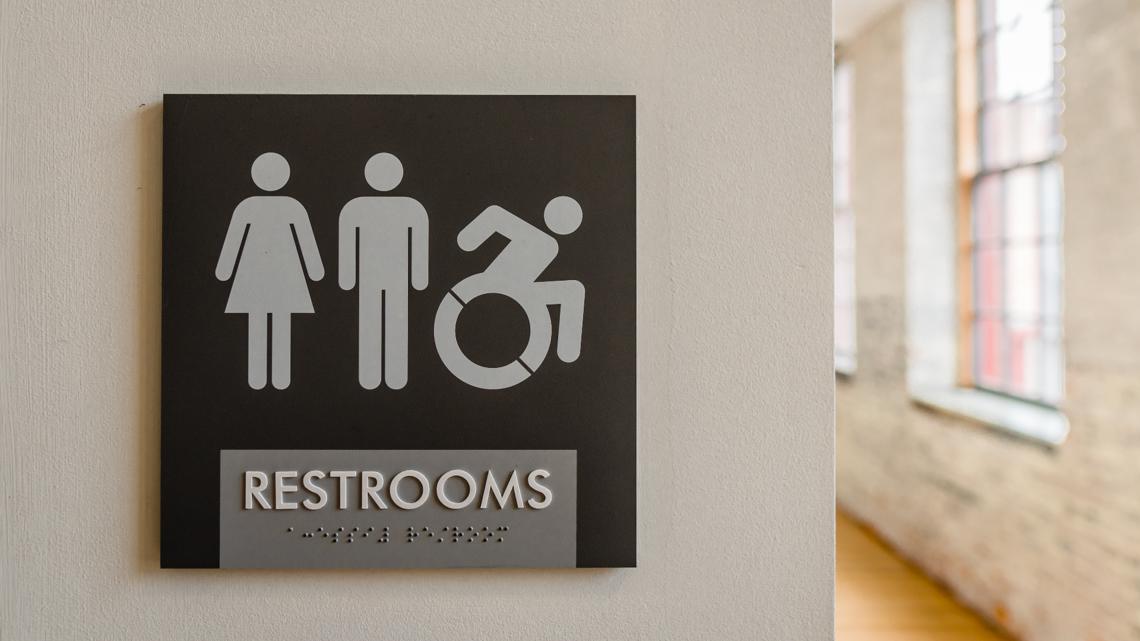
Texas lawmakers debated SB 7 to enforce bathroom use based on birth certificate gender, with increased penalties for violations.
AUSTIN, Texas — The controversial “bathroom bill” is back up for discussion at the Texas Capitol.
On Monday morning, the Senate Committee on State Affairs took up Senate Bill 7, also known as the Texas Women’s Privacy Act. The bill ensures that people are only using bathrooms or locker rooms in public schools and government buildings that are the same of their biological sex, as it’s stated on their birth certificate.
“This is common sense,” said author of the bill, state Sen. Mayes Middleton (R-Galveston). “It protects women and children in private spaces like bathrooms, locker rooms, showers, family violence shelters that are dedicated to women … Women should not be forcibly exposed to men in private spaces, period.”
What happened with past ‘bathroom bills’?
Texas lawmakers have tried to pass similar legislation several times, not only this past session, but also back in 2017. This session, SB 240 passed in the Senate, but both that bill and its companion House bill died in the House.
Middleton said what makes this bill stronger from previous ones is the increased punishments attached to it.
Under SB 7, the punishment for the first violation is $5,000 and then $25,000 for any additional violations. With the proposed SB 6 back in 2017, the first violation could be between $1,000 and $1,500, and each additional one would be between $10,000 and $10,500.
“This bill has real teeth for enforcement and it’s not just a slap on the hand,” Middleton said. “Safety for women and children is common sense and should not be sacrificed for the left’s radical gender ideology.”
SB 7 also requires inmates to be housed in the correctional facility according to their biological sex and says that family violence shelters are only allowed to provide services to female victims if their biological sex is female.
What do people have to say about SB 7?
Texas lawmakers invited several people to testify, including Kim Slusser, the Texan mother of Brooke Slusser, who’s currently involved in a lawsuit with San Jose State University for having to share private spaces like hotel rooms and locker rooms with a transgender teammate. Brooke also joined an NCAA lawsuit with Riley Gaines in September 2024.
Slusser claimed that after speaking out, her daughter felt targeted and isolated, and even received a death threat from teammates.
“Girls in Texas deserve the right to privacy, safety and fairness,” Slusser said. “Women and girls are counting on this bill to pass. Please don’t let what happened to my daughter Brooke ever happen again to any other girl.”
Amie Ichikawa, the founder of Woman to Woman, a support group for incarcerated women in California testified about what happened in California when they passed a bill that would allow any inmate to transfer into the prison of their selected gender identity.
“Women in prison already live in conditions where privacy is almost nonexistent, now they’re being forced to share small, overcrowded spaces with men, including those with violent criminal histories with no intention of transitioning,” Ichikawa said.
But others who testified are worried the bill will do the opposite of what it says.
“Have you failed to realize that this bill will do the exact opposite of what you want?” said Naveen Ferrani, an Austin resident. “It will force men into women’s spaces. You have been so fixated on painting trans women as the enemy and kicking them out of women’s spaces that you have created a policy which would force trans men into the very spaces you’re claiming to protect.”
Arwyn Heilrayne, a transgender Texan girl, is concerned the bill will target transgender women like herself.
“I never felt unsafe using bathrooms and locker rooms with trans people, never,” Heilrayne said. “This bill would make me feel incredibly unsafe. It would make me incredibly unsafe in the bathrooms and locker rooms here in Texas.”
Others also expressed concerns about how this bill could be enforced.
“I’m a woman with short hair who doesn’t fit everyone’s idea of feminine,” said Emily Wisch, an Austin resident. “Under this law, I could be questioned, harassed or worse because measures like this embolden strangers to police anyone who doesn’t look the way that they think they should.”
After listening to about six hours of testimony, the committee reported SB 7 favorably to the full Senate for consideration.
